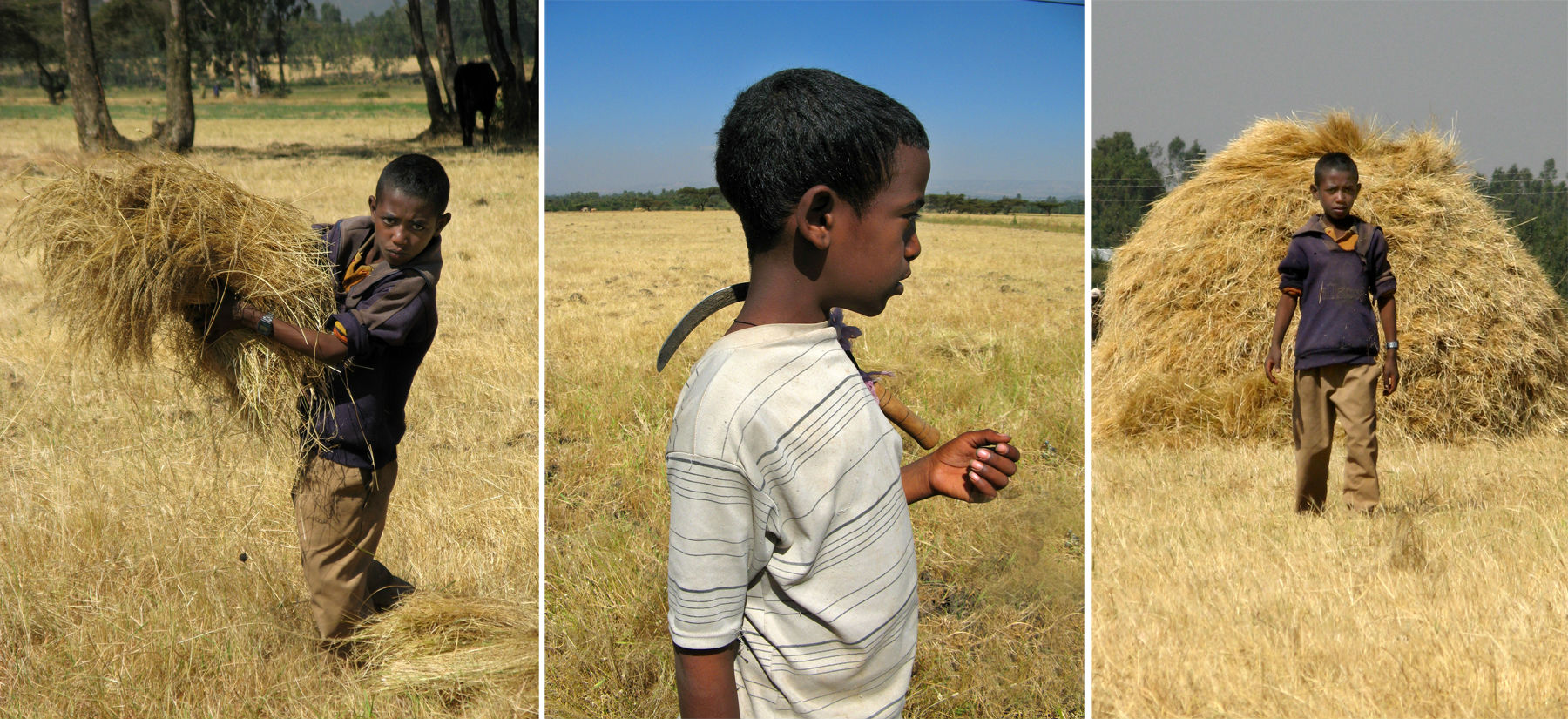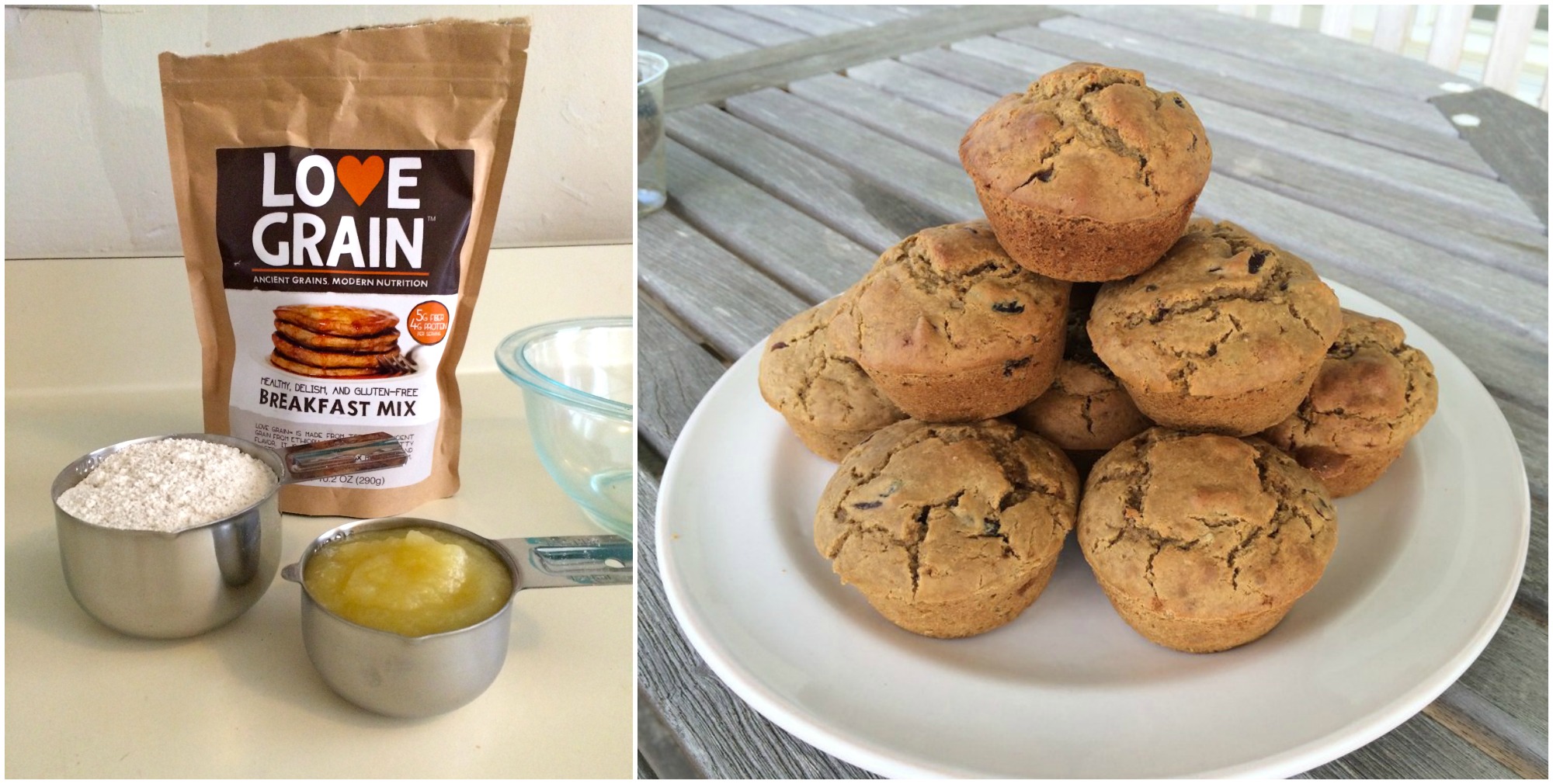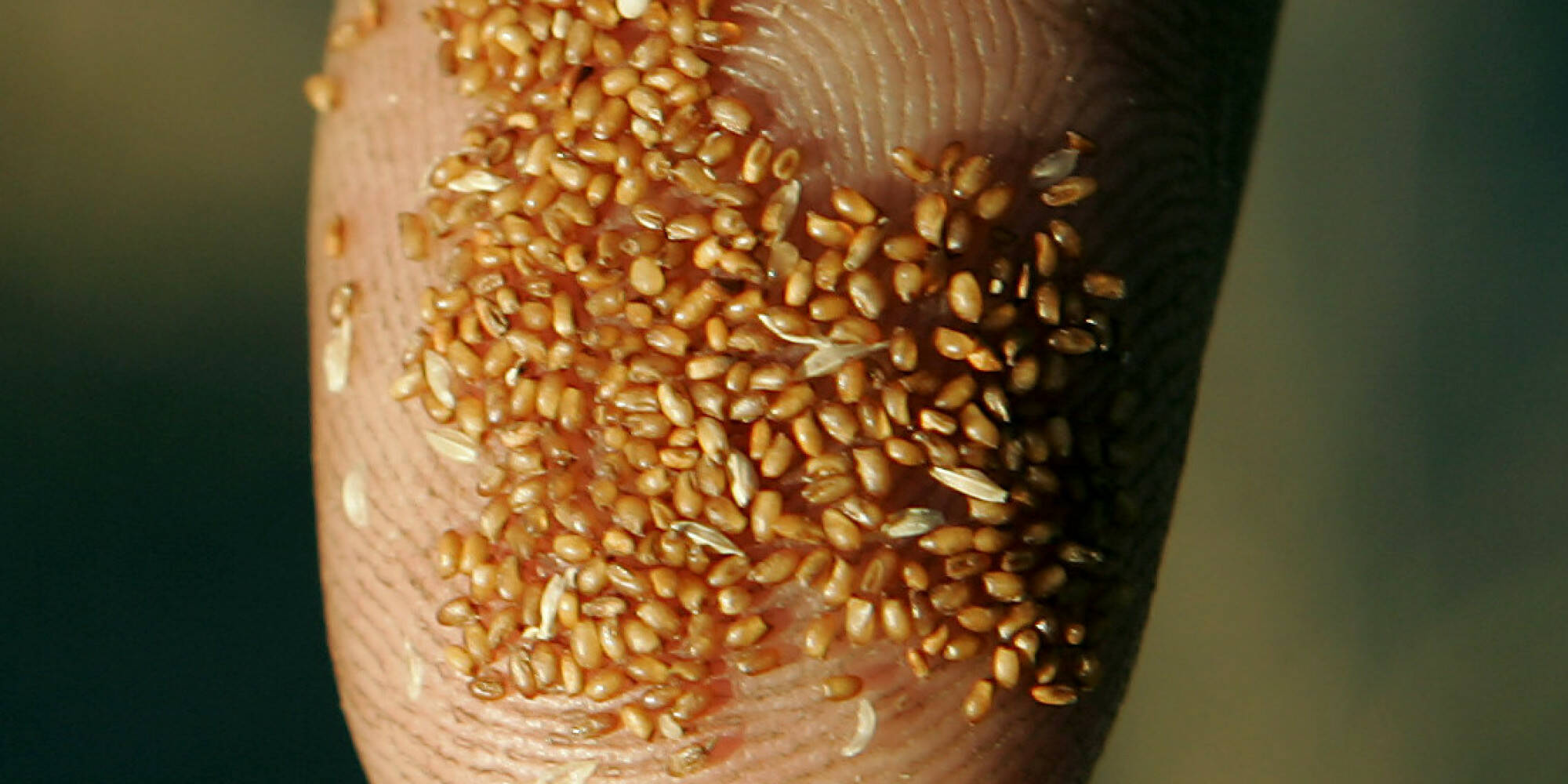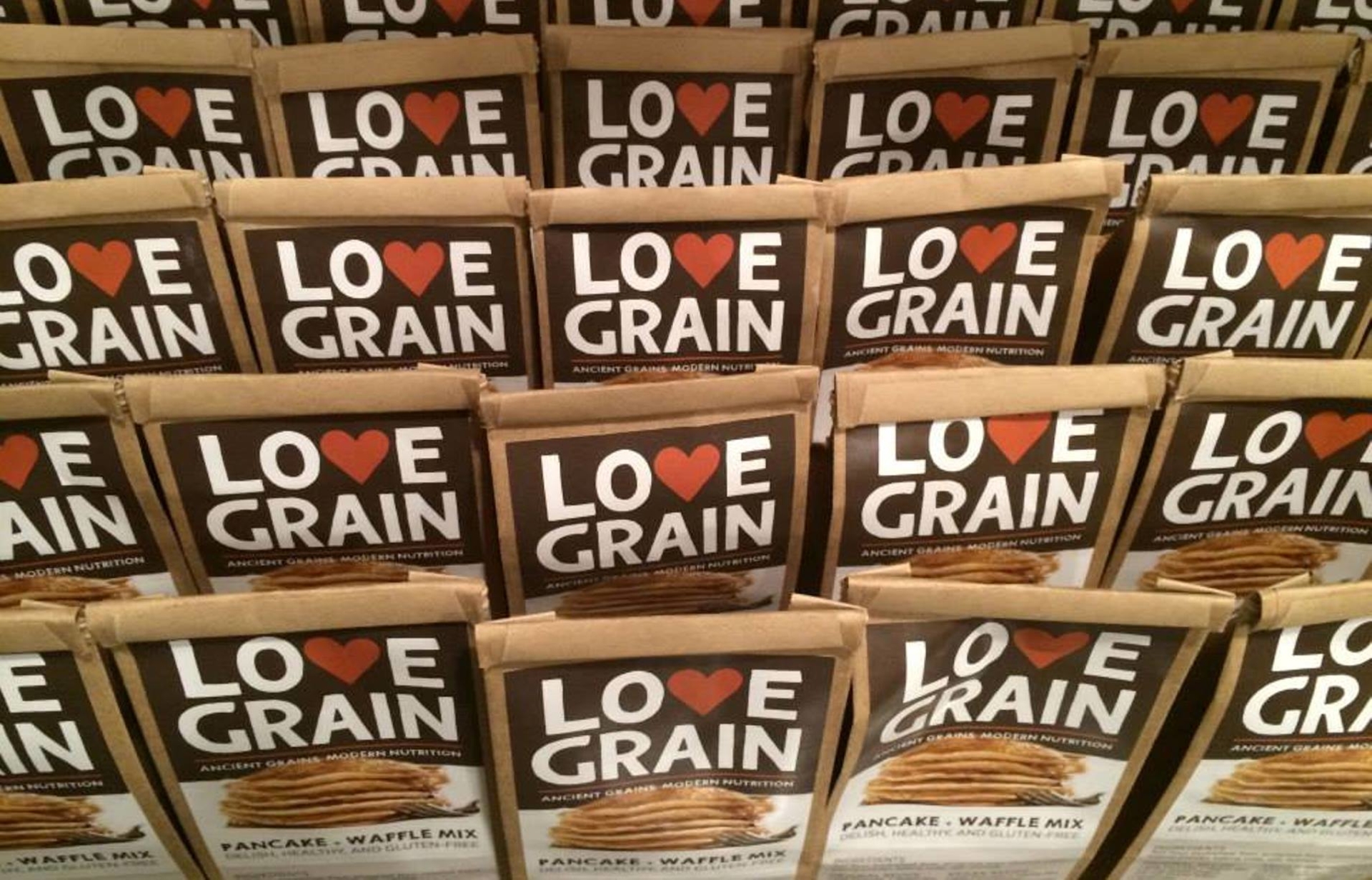Love Grain is the first US company that began to produce food products made of teff, a traditional Ethiopian grain, which is the ultimate gluten-free source of nutrients, important for human health. Direct delivery from the farmers can significantly raise the Ethiopian agricultural economy and cover the US market needs in healthy, ecological, gluten-free food.
HISTORY
Aleem Ahmed founded Love Grain in 2013 to manufacture gluten-free snacks and food made of teff from Ethiopia. Being an MBA student of Harvard Kennedy School and MIT Sloan School of Management, he took part in Teff Value Chain Program in Ethiopia, where he worked on the problem of increasing the teff crops of 3 million of local farmers. During this period he learned that 7 million of Ethiopian teff farmers experienced great problems with the sales market. Then he got an idea to bring this gluten-free, wholesome product to the US market, meanwhile helping to increase the economical situation of Ethiopian farmers and whole Ethiopian agricultural section.
Aleem used his MBA knowledge, as well as assistance of his classmates and teachers, and started his new business.
The chief aim of the company was to connect the Ethiopian growers with the world market via wholesome, ecological food.
PROBLEM OF ETHIOPIAN FARMERS
Annually Ehiopian agricultural branch produces tons of authentic food, like teff, panic grass, bere, ambercane, gram chickling, bean and benne. Those small farming enterprises are in the same everyday wants as other people everywhere in the world: they need to eat, to study, to invest in the future crops, etc.
But they daily face two main problems. First, during the seeding period they do not have enough assets to buy high-quality seed grains and fertilizers to increase their crops significantly. Second, after harvesting they do not have proper access to sales market and they have no other choice than to sell the yields to local dealers at an extremely low price in comparison with the world market rates. They are going round in circles of poverty and underproduction.
The team of Love Grain is sure that there is a solution of that global Ethiopian problem. Today healthy and ecological food is at the height of popularity, especially, in such countries, as the USA. So, Love Grain decided to connect these two markets together.
Remaining committed to the principles of healthy nutrition, Love Grain does not use any detrimental ingredients, preserving agents, etc. in its products. The key point of these products is plant protein, gluten-free staff and perfect taste, even without too much sugar.

TEFF
Teff is grown in Ethiopian valleys since 1000 BC. It has always been popular among local farmers due to its viability and great importance. It grows rather successfully even in dry or water-inundated soils. All parts of the herb could be used by a man. Ground grains are used for baking special Ethiopian flat cakes, herbage is used as animal feeding staff, straw is used as a construction material, etc.
Ethiopian women are aware of teff's nutritive properties, that's why they always eat teff gruel shortly after childbirth to restore the nutrients, and teff flat cakes are traditionally used in the Ethiopian custom, gursha, when family and friends feed one another to express their love and affection. Teff has long-term period of storage, it does not spoil and can guarantee a source of nutrients in cases, when crops are not regular and stable.
Ethiopean runners, famous all over the world, have always used teff as a "secret weapon", giving them energy and strength during marathons and various competitions.
Teff is the smallest gluten-free grain in the world, but it comprises unequaled set of nutrients. Teff grain is reach in protein and calcium. The content of ferrum in teff is 2,4-4,8 time more than in wheat. One glass of dried teff contains 28 g of protein, 16 g of dietetic fiber, 35% of a man's daily amount of calcium and 82% of daily amount of ferrum. And it's absolutely gluten-free. Gluten-free trend grasped the United Sates during the recent years. Consumers are crazy about everything gluten-free, from snacks to pasta. Proceeding from this euphoria, Love Grain can have good prospects on the US market.
DISTRIBUTION AND PRICES
The first experimental batch of Breakfast Mix came into the market at the end of 2013, comprised 1.400 pieces and cost about $9 per unit. Today the official site says that all the products are sold out.
SUCCESS FACTORS
The teff products have the following success factors:
- almost unlimited teff source market in Ethiopia;
- low purchasing price of raw materials;
- great social impact, improving the economy of the developing country;
- an unequaled source of nutrients;
- gluten-free and ecological products are in extremely great demand today all over the world.

MEDIA
"Ahmed is able to import teff flour for his products. He works directly with the farmers, cutting out the middle man so that the producers get the best prices for their crops, a practice that bumps their earnings up by some 25 percent. Love Grain also pre-pays for seed and fertilizer, and aims to develop long-term, sustained relationships with its suppliers. The company has so far only produced Love Grain Breakfast Mix, a pancake and waffle mix that sold out very quickly. Along with teff flour, it contains buckwheat flour, arrowroot flour, and coconut sugar, plus leaveners and spices." (Forbes)
"One study of 1,800 people with celiac disease found that those who regularly ate teff reported a significant reduction in symptoms. Another study led by scientists at Manchester Metropolitan University in England found that female runners with low iron levels who were assigned to consume bread made from teff every day for six weeks had improvements in their iron levels. The study’s lead author, Dr. Ieva Alaunyte, a registered nutritionist and former competitive runner, said she designed the study because iron deficiencies are especially common among female runners and endurance athletes and teff seemed like a good dietary solution. “If someone wants to increase their iron levels through diet then I would try to incorporate teff,” she said." (The New York Times)
“Teff holds a very special place in Ethiopia’s cultural heritage. To be Ethiopian is to eat teff,” Ahmed explains. “There really weren’t very many companies in Ethiopia that had the ability to purchase directly from farmers because they didn’t have scale, and then I started looking abroad and realized that really there weren’t folks outside of Ethiopia that knew about teff, nor were there companies converting teff grain into foods that fit the Western lifestyle.” (Boston Magazine)
"Instead of selling just pure teff, Love Grain makes it easy to enjoy by creating pre-made mixes and treats. This sustainable business model has already won them a 2014 IDEAS Venture Grant from MIT IDEAS Global Challenge." (Cool Hunting)

"Dubbed the ‘new quinoa’ (apart from Ethiopians who have been eating it for thousands of years), teff is the new grain that people can’t stop talking about. Even if you aren’t a fan of celebrity endorsements - Gwyneth Paltrow and Victoria Beckham are said to love the stuff - it has top notch health credentials, as it is rich in protein, iron and calcium. In other words, a fantastic option for people who don’t eat gluten or dairy, and for vegetarians who struggle to get protein into their diets." (Huffpost Lifestyle)
OPINIONS
“As well as having an attractive nutrient profile, teff also boasts 13% protein, making it an ideal grain for slow release energy. It is also naturally gluten free, so is likely to cause rather a stir amongst those keen to stick to a gluten free diet. It is important to remember that just because another unknown grain has been discovered, it should not nullify the previous font runners - quinoa is still quinoa and still retains all the benefits it did when it was in the limelight. Hopefully the lessons learned about how to ethically trade indigenous grains without disrupting the economy and diet of the local people will be put into practice this time, as it seems as though demand for teff is going to skyrocket” (Nutritionist Alice Mackintosh from The Food Doctor)
"Teff is a fantastic gluten free alternative to flour and has pride of place in my larder for it’s incredibly nutrient dense content. Well worth trying.” (Francesca Fox, health and fitness expert from FrancescasFitKitchen.com)
“The market for gluten-free has soared in the past couple of years, but many retailers have turned to white rice and corn as a wheat substitute. What our customers are seeking are gluten-free wholegrain alternatives which offer much higher nutritional benefits and teff, like quinoa, fits the criteria.” (Toby Watts from Planet Organic)


